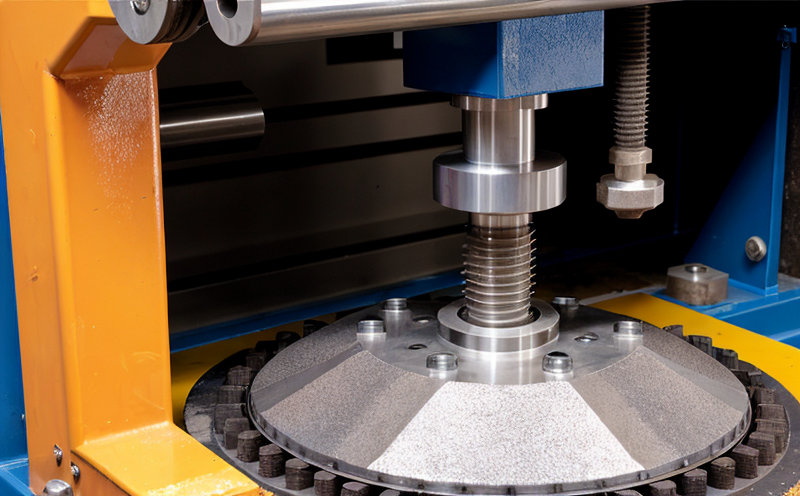EN 60068-2-27-2 Shock Resistance Test
The EN 60068-2-27-2 shock resistance test is a crucial procedure for assessing the mechanical reliability and durability of HVAC equipment under sudden impact loads. This test ensures that the equipment can withstand external shocks without compromising its functionality, which is critical in harsh environments such as industrial settings or regions prone to seismic activity.
The standard specifies the method of testing products against shock inputs using a half-sine pulse waveform. The test setup involves placing the specimen on a vibration table that is driven by a sine wave generator. The shock input is generated by abruptly changing the direction of the sinusoidal motion, which simulates real-world conditions such as vehicle bumps or earthquakes.
Before testing, it's essential to prepare the specimen according to the standard’s requirements. This includes ensuring the equipment is in its operational state and properly secured on the test fixture. The environmental conditions (temperature and humidity) should also be controlled to match the expected operating environment of the equipment.
The shock resistance test typically involves three main parameters: amplitude, frequency, and duration of the impact pulse. These parameters are chosen based on the specific application and expected operational environment of the HVAC equipment. The standard provides a range of options for these parameters, allowing laboratories like Eurolab to tailor each test to meet the client's needs accurately.
During the test, the specimen is subjected to one or more shock pulses. The response of the equipment is then analyzed using various measurement techniques, including accelerometers and displacement sensors. These instruments provide data on the peak acceleration experienced by the specimen during the impact pulse.
The acceptance criteria for this test are based on the performance of the equipment after exposure to the specified shock inputs. Acceptance typically involves verifying that the equipment remains operational without significant damage or functional degradation. In some cases, additional tests may be required to ensure that the equipment can resume normal operation after the shock.
The EN 60068-2-27-2 test is widely recognized and accepted in many industries, including HVAC manufacturing. Compliance with this standard helps manufacturers meet regulatory requirements and ensures that their products are robust enough for real-world use. This test is particularly important for equipment designed to be installed in challenging environments where mechanical stresses may be significant.
For quality managers and compliance officers, this testing process provides a critical assurance that the HVAC equipment meets international standards and can perform reliably under adverse conditions. R&D engineers benefit from detailed data on how their products respond to shocks, allowing for iterative improvements. Procurement teams can use the results of these tests to make informed decisions about which suppliers meet the necessary quality thresholds.
- Amplitude: The maximum peak acceleration that the specimen is subjected to during the shock pulse.
- Frequency: The frequency range over which the sinusoidal motion is applied before the abrupt change in direction.
- Durability: The ability of the equipment to withstand multiple shock pulses without failing.
Eurolab Advantages
At Eurolab, we pride ourselves on offering comprehensive mechanical reliability and vibration testing services that meet or exceed global standards. Our team of experts ensures that each EN 60068-2-27-2 shock resistance test is conducted with precision and accuracy, providing clients with reliable data to support their quality assurance processes.
Our state-of-the-art facilities are equipped with advanced instrumentation capable of generating precise shock pulses. This allows us to simulate real-world conditions accurately, ensuring that the results of our tests are relevant and meaningful for your specific application.
We understand the importance of turnaround times in the testing process. Eurolab's efficient workflow ensures that you receive your test reports promptly, allowing you to make timely decisions about product design and quality control.
International Acceptance and Recognition
- The EN 60068-2-27-2 shock resistance test is recognized by industry leaders in HVAC equipment manufacturing as a critical step in ensuring product reliability.
- Many countries that have adopted European standards also recognize this test, making it a global benchmark for mechanical reliability.
- Compliance with these standards can be advantageous for international trade, as it aligns with the requirements of various regulatory bodies worldwide.
Competitive Advantage and Market Impact
By ensuring that your HVAC equipment meets or exceeds the strict requirements set by EN 60068-2-27-2, you can gain a significant competitive edge in the market. Customers are increasingly demanding products that not only meet basic performance standards but also demonstrate robustness and durability under challenging conditions.
Compliance with this standard sets a benchmark for quality that can help differentiate your product from competitors who may not adhere to such stringent testing protocols. This can lead to increased customer trust, leading to higher sales volumes and better brand reputation.





